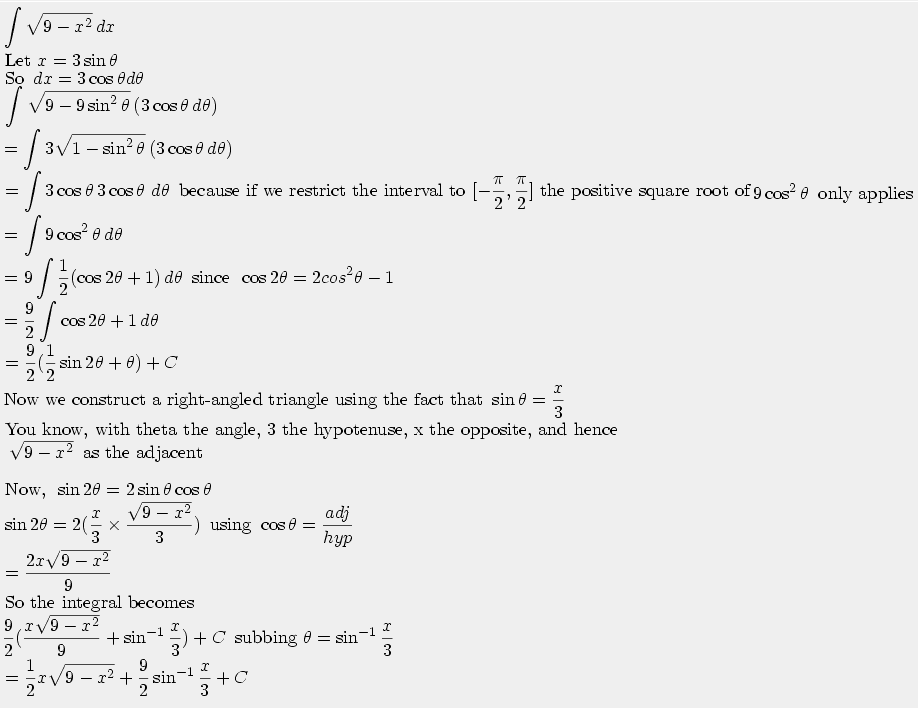Please help:
S square root of (9 - x^2) dx. The dx is outside the square root.
I tried substitution, but I ended up with -1/2 x du = dx, when u = 9 - x^2.
S is the integral symbol, because I can't type the fancy S.
I know the difference of squares formula, so I tried it -> 9 - x^2 = (3 + x) (3 - x).
Then I got S square root of (3-x)(3+x) dx
and I used the special formula -> S u dv = uv - S v du
I let u = square root of 3-x
and dv = square root of (3+x) dx.
If there is a more simple method or approach, please help! Thanks.
S square root of (9 - x^2) dx. The dx is outside the square root.
I tried substitution, but I ended up with -1/2 x du = dx, when u = 9 - x^2.
S is the integral symbol, because I can't type the fancy S.
I know the difference of squares formula, so I tried it -> 9 - x^2 = (3 + x) (3 - x).
Then I got S square root of (3-x)(3+x) dx
and I used the special formula -> S u dv = uv - S v du
I let u = square root of 3-x
and dv = square root of (3+x) dx.
If there is a more simple method or approach, please help! Thanks.

